I’m not a perfect canoe tripper. I’ve sat on my life jacket at the campsite, used my bailer bucket as a pee bottle, stuck the blade of my paddle in the sand, and pitched my tent under a gnarly dead tree.
I’ve mocked someone else’s gear, giggled at skinny dippers, and—some might say this is worst of all—for many years, I paddled with the goon stroke rather than a proper J.
Gasp.
These weren’t immoral acts. They were errors in judgment and holes in knowledge, and I’ve learned from my bad behavior.
However, not all of my errors have been so harmless. I learned the hard way strapping an extra pack on my chest to finish a portage faster is a good way to trip and fall, then spend days hobbling around on a sprained ankle.
Sitting in the stern seat while solo paddling never did get me anywhere fast. And grabbing the gunwale mid-rapid is poor form worthy of good-natured ribbing. Not tying my boat down at night on a wilderness expedition is perhaps my most egregious sin of them all.
So, no, I’m not a saint. I’ve caused grief to some of my paddling partners too, leading to more solo trips penciled into my agenda than planned. I’ve been advised adjusting the seating arrangement in the canoe without giving fair warning to my partner is rude.
Being a chatty Cathy from morning to night is problematic for many—as is singing the same song, like a jukebox on repeat. Bringing my smelly socks and boots into the tent is allegedly unforgivable. And high-grading the gorp, well, that’s probably one of the most gluttonous acts of which I’m guilty.
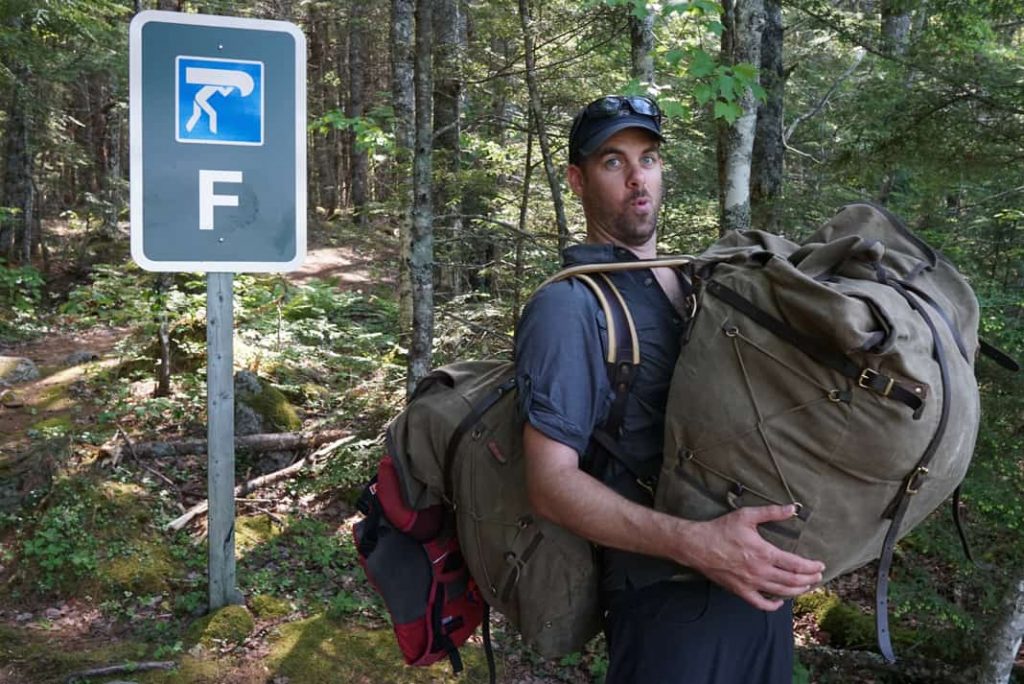
The majority of the time my moral compass has kept the devil from my door, and I’ve become a better paddler due to being called out on my misdeeds—most canoeists can relate. However, there are a few paddlers on the water performing acts of wickedness which define some of the wilderness traveler’s deadliest sins.
The first is being too prideful to wear a PFD—the grim reaper doesn’t care if you think you look cooler without it. The second is impatience—patience is a virtue, as is traveling as slowly as the slowest member in your group.
Not being considerate of other trippers can bring out the devil in anyone. Blocking the put-in or take-out with a canoe and gear—or not giving the person carrying the canoe the right of way—are just two examples of bad etiquette that get my wrath.
Leaving a trace is always a capital offense, so camp on durable surfaces and dispose of waste properly. It’s villainous not to dig a proper cat hole or to deposit toilet paper for everyone else to be nauseated at the sight of.
Interfering with wildlife—even for an amazing Instagram shot—is wrong. Avoid attracting animals in camp by hanging your food, don’t wash dishes in the lake, or leave trash in the fire pit. And speaking of fire—a hatchet can be the devil’s sword. Minimize a campfire’s impact by keeping it small, and never cut green wood.
Perhaps the worst sin, at least in my good book, is not appreciating being out there. If you spend more time complaining about the bugs and bad weather than you do being thankful for reconnecting with the wilderness, well, I pray for your soul.
Kevin Callan is the author of 17 wilderness camping and canoeing book, including The Happy Camper series. The wilderness is his church.
F is for falling. | Featured Photo: Kevin Callan


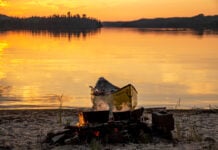
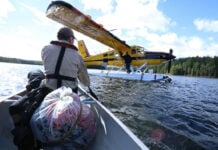

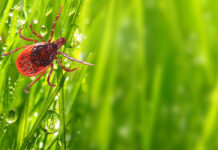
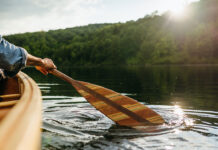

Yikes this article is bad.